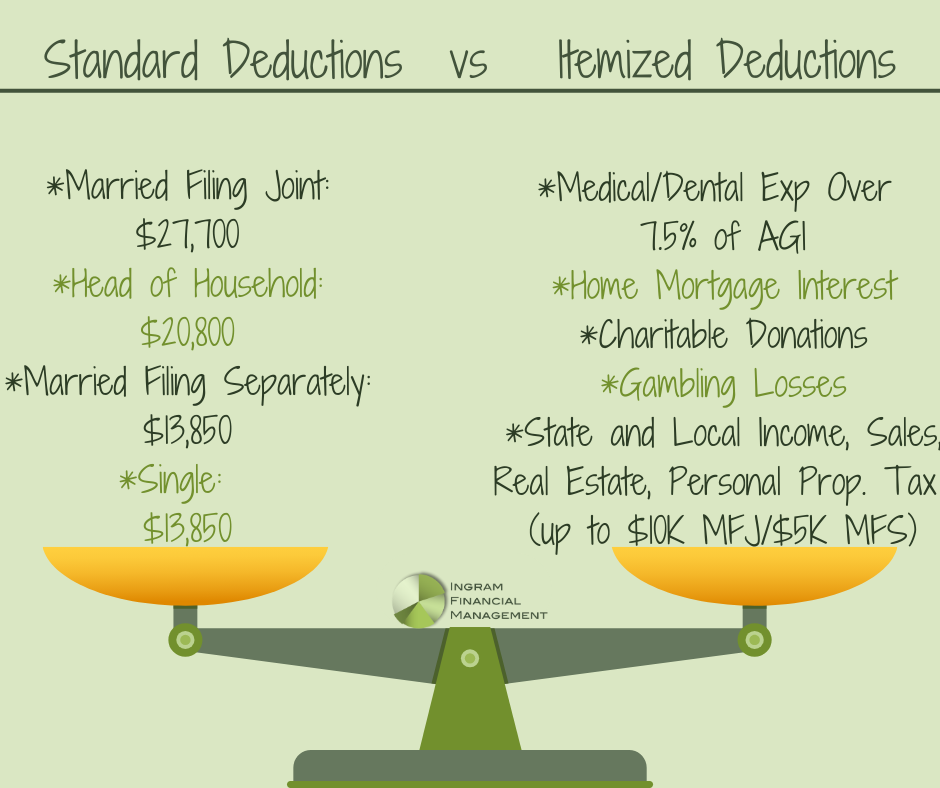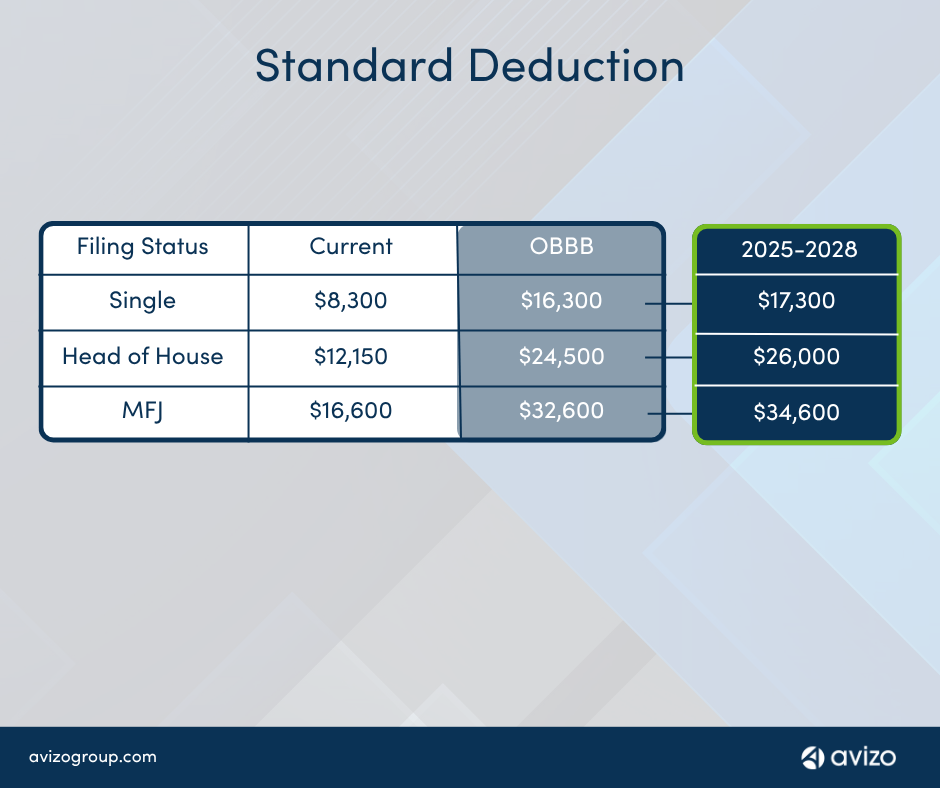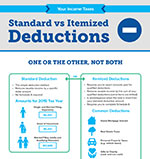How the FEIE Standard Deduction influences eligibility for other tax credits
Wiki Article
Everything about the Foreign Earned Revenue Exclusion: Maximizing Your Criterion Deduction Benefits
The Foreign Earned Revenue Exemption (FEIE) provides a useful chance for U.S. people living abroad to decrease their tax obligations. Understanding the qualification requirements is important for those looking for to take advantage of this exemption. Additionally, declaring the conventional reduction can enhance overall tax advantages. Nevertheless, managing this procedure entails careful focus to detail and a recognition of usual mistakes. Exploring these facets can offer quality and make the most of possible tax benefits.Recognizing the Foreign Earned Revenue Exclusion (FEIE)
The International Earned Revenue Exclusion (FEIE) enables U.S. people and resident aliens functioning abroad to omit a portion of their international revenues from government income tax obligation. This provision works as a monetary alleviation mechanism, enabling migrants to keep a larger share of their revenue made in international countries. By reducing taxed revenue, the FEIE assists minimize the concern of dual taxes, as individuals may additionally be subject to taxes in their host countries. The exemption uses just to made income, which includes salaries, wages, and specialist charges, while passive earnings and financial investment gains do not certify. To gain from the FEIE, individuals must file certain forms with the internal revenue service, detailing their international revenues and residency - FEIE Standard Deduction. Understanding the nuances of the FEIE can substantially affect financial preparation for U.S. citizens living overseas, making it necessary for expatriates to stay educated regarding this beneficial tax obligation stipulationEligibility Standards for the FEIE
To qualify for the Foreign Earned Earnings Exemption (FEIE), people should fulfill particular qualification criteria. This consists of enjoyable residency demands, passing the physical existence examination, and establishing a tax home in an international country. Each of these aspects plays an important function in determining whether one can take advantage of the exemption.Residency Needs
Meeting the residency requirements is crucial for individuals seeking to get approved for the Foreign Earned Income Exemption (FEIE) To be qualified, taxpayers must establish an authentic house in a foreign nation or nations for an uninterrupted period that commonly covers a whole tax year. This need highlights the requirement of a much deeper link to the foreign place, relocating past mere physical existence. People have to show their intent to live in the international nation and have established their living situation there. Aspects such as the length of remain, sort of housing, and regional area involvement are taken into consideration in identifying residency. Meeting these requirements is crucial, as failing to do so may invalidate one from profiting from the FEIE.Physical Presence Test
Establishing qualification for the Foreign Earned Revenue Exemption (FEIE) can also be achieved via the Physical Existence Test, which calls for individuals to be literally present in an international country for a minimum of 330 full days during a consecutive 12-month period. This test is helpful for those who may not fulfill the residency demand yet still stay abroad. The 330 days need to be full days, implying that any kind of day spent in the USA does not count towards this total. It is important for individuals to maintain precise records of their travel dates and places to sustain their insurance claims. Efficiently passing this examination can substantially minimize gross income and enhance economic results for migrants.Tax Home Location
Tax obligation home location plays an important duty in identifying qualification for the Foreign Earned Revenue Exclusion (FEIE) To certify, a private must establish a tax home in a foreign country, which means their key business is outside the USA. This stands out from a plain residence; the specific have to perform their operate in the foreign nation while maintaining a substantial connection to it. The IRS needs that the taxpayer can demonstrate the intent to stay in the foreign area for an extended period. In addition, maintaining a home in the U.S. can complicate qualification, as it might recommend that the person's real tax home is still in the United States. Recognizing this standard is critical for taking full advantage of FEIE benefits.Just how to Assert the FEIE on Your Tax Obligation Return
Claiming the Foreign Earned Earnings Exclusion (FEIE) on an income tax return needs careful attention to information and adherence to specific IRS standards. Taxpayers should initially confirm qualification by satisfying either the authentic home test or the physical visibility examination. As soon as qualification is validated, they need to finish IRS Kind 2555, which details foreign gained income and relevant details regarding their tax home.It is important to report all international income properly and preserve proper paperwork to support insurance claims. Taxpayers must additionally be conscious of the maximum exclusion limitation, which undergoes annual changes by the IRS. Filing Type 2555 along with the annual tax return enables taxpayers to exclude a part of their international profits from united state taxes. It is advisable to consult a tax specialist or Internal revenue service resources for upgraded details and advice on the FEIE process, assuring conformity and maximization of potential advantages.

The Criterion Reduction: What You Required to Know
Exactly how does the common deduction effect taxpayers' overall financial scenario? The common deduction works as a significant tax obligation benefit, minimizing gross income and potentially decreasing tax obligation responsibilities. For the tax obligation year 2023, the standard deduction is established at $13,850 for single filers and $27,700 for wedded couples filing collectively. This reduction simplifies the filing process, as taxpayers can choose it rather than detailing reductions, which needs detailed record-keeping.
Taxpayers gaining international income might still assert the common reduction, gaining from minimized taxable revenue also while utilizing the Foreign Earned Revenue Exclusion (FEIE) It is crucial to keep in mind that the basic reduction can not be incorporated with itemized deductions for the exact same tax year - FEIE Standard Deduction. As a result, recognizing the conventional reduction permits taxpayers to make enlightened choices regarding their tax techniques, maximizing available advantages while making certain compliance with internal revenue service policies
Strategies for Optimizing Your Deductions
Taking full advantage of deductions under the Foreign Earned Revenue Exemption calls for a clear understanding of gained revenue limits and the benefits of declaring real estate exemptions. In addition, using Type 2555 properly can boost the possibility for considerable tax savings. These strategies can considerably affect the total tax obligation responsibility for expatriates.Understand Gained Revenue Limitations
While several migrants seek to reduce their tax worry, comprehending the earned revenue limitations is essential for successfully leveraging the Foreign Earned Earnings Exclusion. The Irs (IRS) sets details limits that determine the maximum amount of foreign gained earnings eligible for exemption. For the tax year 2023, this restriction is $120,000 per qualified individual. Exceeding this limit might cause taxation on the income above the restriction, diminishing the advantages of the exemption. To make the most of reductions, migrants must keep precise documents of their foreign earned income and assess their eligibility for the exemption every year. Strategic intending around these limits click here for info can substantially boost tax obligation financial savings, permitting expatriates to enhance their economic circumstance while living abroad.Declaring Real Estate Exemption Perks
Several migrants neglect the prospective benefits of asserting the Housing Exclusion, which can significantly lower their taxable revenue. This exemption allows people living abroad to subtract certain real estate expenditures from their gross revenue, making it much easier to fulfill financial commitments without incurring considerable tax obligation liabilities. To optimize this advantage, expatriates need to validate they certify based on their house and employment situations. In addition, comprehending qualified costs-- such as rent, energies, and upkeep-- can improve the overall deduction. Maintaining thorough documents of these costs is important for corroborating cases. By tactically maneuvering via the Housing Exemption, expatriates can significantly decrease their tax burden and keep even more of their earnings while living overseas, inevitably improving their economic wellness.Make Use Of Form 2555 Properly
Utilizing Type 2555 efficiently can greatly improve the economic benefits offered to migrants, especially after capitalizing on the Real estate Exclusion. This kind enables people to claim the Foreign Earned Earnings Exemption, which can greatly decrease gross income. To optimize deductions, migrants should confirm they fulfill the credentials, including the physical existence examination or the bona fide residence test. It is vital to precisely report all foreign earned earnings and to keep thorough records of eligibility. Furthermore, making use of the Housing Exclusion in tandem with Form 2555 can even more decrease overall tax obligation. By recognizing the intricacies of these kinds, migrants can optimize their tax obligation circumstance and maintain even more of their hard-earned earnings while living abroad.Typical Mistakes to Stay Clear Of When Filing Your Tax Obligations Abroad

Frequently Asked Concerns
Can I Claim Both FEIE and the Foreign Tax Credit Score?
Yes, an individual can claim both the Foreign Earned Earnings Exclusion (FEIE) and the Foreign Tax Credit History (FTC) They must ensure that the exact same income is not made use of for both benefits to avoid dual advantages.What Happens if I Exceed the FEIE Revenue Restriction?
Exceeding the Foreign Earned Revenue Exclusion (FEIE) revenue restriction results in the ineligibility for the exemption on the excess quantity. This can cause taxed revenue in the USA, needing proper tax obligation filings.Exist Any State Tax Obligation Implications for FEIE?
State tax implications for the Foreign Earned Earnings Exclusion (FEIE) differ by state. Some states may tax foreign income while others follow government exemptions, making it important for individuals to get in touch with state-specific tax regulations for clarity.
How Does FEIE Impact My Social Safety And Security Conveniences?
The Foreign Earned Earnings Exclusion (FEIE) does not straight influence Social Safety and security benefits. Revenue excluded under FEIE might impact the calculation of average indexed monthly profits, potentially affecting future benefits.Can I Revoke My FEIE Election After Declaring It?
Yes, a person can withdraw their International Earned Income Exemption (FEIE) political election after declaring it. This cancellation should More hints be done in creating and sent to the internal revenue service, adhering to details standards and target dates.Understanding the Foreign Earned Income Exemption (FEIE)
The Foreign Earned International Exclusion EarningsExemption) allows U.S. citizens and resident aliens working abroad to exclude a portion of part foreign earnings from incomes income government. Taxpayers gaining international income Get More Info may still claim the standard reduction, benefiting from minimized taxable revenue also while using the Foreign Earned Income Exclusion (FEIE) Taking full advantage of reductions under the Foreign Earned Income Exemption requires a clear understanding of earned income limits and the advantages of declaring real estate exclusions. While numerous migrants seek to minimize their tax problem, recognizing the gained revenue limits is important for effectively leveraging the Foreign Earned Earnings Exclusion. Going Beyond the Foreign Earned Earnings Exclusion (FEIE) earnings restriction results in the ineligibility for the exemption on the excess amount.
Report this wiki page